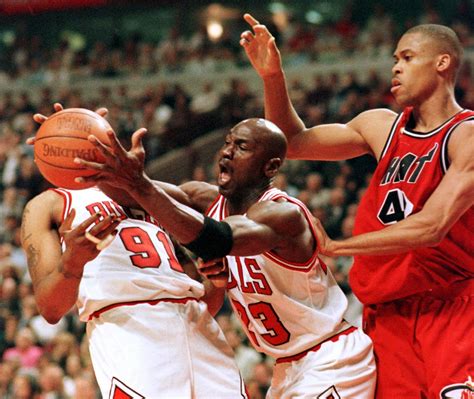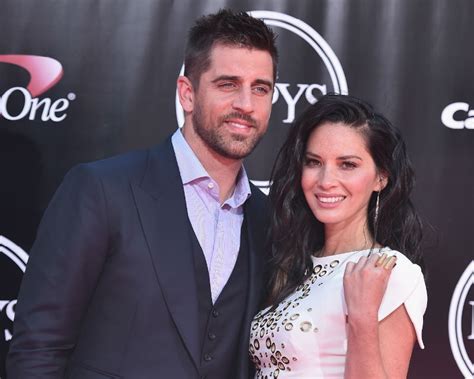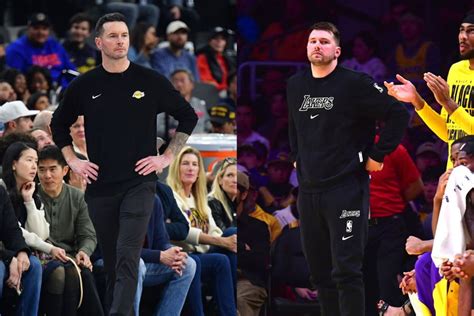
Michael Jordan’s relentless competitive spirit prevents him from fully embracing the role of a typical NBA fan, as his intense desire to win remains deeply ingrained even in retirement. This unwavering drive shapes his perspective on the current state of the game, making it difficult for him to simply sit back and enjoy basketball without analyzing and critiquing.
Michael Jordan, arguably the greatest basketball player of all time, revealed in a recent interview his continuing struggle to watch the NBA as a casual fan. His unparalleled competitive nature, the driving force behind his six NBA championships with the Chicago Bulls, continues to dictate his engagement with the sport, even in retirement. According to the interview, Jordan finds it nearly impossible to switch off the analytical and critical lens through which he views the game.
“I can’t close [it] off because of the competitive nature that I have,” Jordan explained. “When I watch, I’m always analyzing.” This constant analysis prevents him from purely enjoying the game as a spectator. Instead, he dissects players’ performances, team strategies, and overall game dynamics, an intrinsic habit forged during his illustrious career.
Jordan’s perspective offers a unique insight into the mindset of an elite athlete. His competitive fire, which propelled him to unprecedented heights, now acts as a barrier to experiencing the sport in a relaxed and detached manner. This challenge highlights the enduring impact of a career defined by unwavering dedication and an insatiable hunger for victory.
The intensity with which Jordan approached basketball is legendary. From his relentless practice sessions to his fierce on-court demeanor, his commitment to excellence was evident in every aspect of his game. This commitment, coupled with his extraordinary talent, made him a dominant force in the NBA for over a decade.
Now, removed from the pressures of playing, Jordan’s competitive instincts remain undiminished. He continues to assess and evaluate, unable to simply appreciate the entertainment value of the sport he once dominated. This ongoing analysis underscores the profound influence of his competitive spirit on his perception and experience of basketball. It also speaks to the level of investment he had, during his playing days, and the lasting impact it has had on his personal life.
His comments illuminate a broader phenomenon among elite athletes: the difficulty of transitioning from intense competition to a more passive role. Many former professionals struggle to reconcile their ingrained competitive habits with the more relaxed demands of retirement. The drive that fueled their success often becomes a defining characteristic, shaping their perspectives and influencing their interactions with the sports they once played.
Jordan’s inability to simply “turn off” his competitive instincts is a testament to the profound impact of a career dedicated to winning. His words provide a rare glimpse into the psychological challenges faced by elite athletes as they navigate life beyond the playing field. While most fans can passively enjoy the game, Jordan’s intrinsic drive forces him to analyze, evaluate, and critique, forever bound to the competitive spirit that defined his legacy.
His post-playing career ventures, including his ownership stake in the Charlotte Hornets (now the Charlotte Hornets Legacy Group), further illustrate his continued engagement with the sport. However, even in this ownership role, Jordan’s competitive drive is evident, influencing his decision-making and shaping his approach to team management.
The interview sheds light on the multifaceted nature of competitive drive, revealing its potential to both inspire greatness and complicate personal experiences. Jordan’s story serves as a compelling reminder of the enduring impact of an athlete’s mindset, even long after their playing days are over.
Jordan’s unrelenting approach to the game made him a global icon, transcending the boundaries of sports and influencing popular culture. He not only redefined the standards of basketball excellence but also set a new benchmark for athletic competitiveness. His legacy continues to inspire athletes and fans worldwide, a testament to his extraordinary talent and unwavering dedication.
However, even as he remains an icon of the sport, the interview highlights the personal cost of such intense competitiveness. While it fueled his success, it now presents a barrier to enjoying the game in a purely recreational manner. Jordan’s experience serves as a valuable lesson, illustrating the complex relationship between ambition, achievement, and personal fulfillment.
The insights revealed about Jordan’s post-retirement relationship with basketball highlight a fascinating aspect of the athlete’s psychological makeup. His inability to disengage from the competitive aspects of the game underscores the profound and lasting effects of a career defined by the pursuit of excellence. It provides a compelling narrative about the challenges and complexities of transitioning from the intensity of professional sports to a more relaxed and detached lifestyle.
Furthermore, Jordan’s comments invite reflection on the nature of fandom itself. While most fans experience the game through a lens of entertainment and enjoyment, Jordan’s perspective is shaped by his intimate understanding of the sport’s intricacies and the pressures of competition. His inability to fully embrace the fan experience reveals the unique perspective of an athlete who has reached the pinnacle of the game.
The article brings into focus a broader conversation about the transition of athletes to retirement, the difficulty of shifting gears from a life of intense competition to one of relative leisure, and the psychological impact of a career defined by the relentless pursuit of victory. Jordan’s experience is both unique and universal, offering insights into the challenges and rewards of a life dedicated to sports.
His legacy as a player is secure, etched in the annals of basketball history. But his post-playing experiences offer a new perspective on the man behind the legend, revealing the enduring impact of his competitive drive and the challenges of reconciling his past accomplishments with his present reality.
The news that Jordan is unable to fully enjoy the game of basketball as a fan because of his intrinsic competitiveness provides a rare glimpse into the mindset of a sporting legend. It unveils not only the drive that propelled him to greatness but also the lasting effect it has on his life, offering a valuable and insightful narrative about the challenges and rewards of elite athletic achievement.
His comments also raise a more general question about the relationship between athletes and the sports they once dominated. Many former professionals find it difficult to adjust to a life outside the arena, struggling to reconcile their ingrained competitive habits with the more relaxed demands of retirement. Jordan’s experiences offer a compelling case study, illuminating the complexities of this transition and the enduring impact of a career defined by the pursuit of excellence.
Jordan’s influence on basketball extends far beyond his playing days. His impact on the sport’s popularity, its commercialization, and its global reach is undeniable. However, his personal struggles to embrace the fan experience highlight the human side of the legend, revealing the challenges and complexities of a life lived in the spotlight.
The interview with Jordan provides valuable insights into the psychological landscape of elite athletes, shedding light on the enduring impact of their competitive drive and the challenges they face in transitioning to life after sports. His story serves as a compelling reminder of the human element behind the athletic achievement, offering a nuanced perspective on the relationship between ambition, success, and personal fulfillment.
In essence, the article encapsulates the enduring legacy of Michael Jordan, not only as a basketball icon but also as a symbol of relentless competitiveness and the enduring impact it has on an individual’s life. His inability to simply enjoy the game as a fan underscores the profound influence of his competitive spirit, providing a compelling narrative about the challenges and rewards of elite athletic achievement. It’s a story that resonates with athletes and fans alike, offering valuable insights into the human side of the sporting legend.
Furthermore, his experience brings to the forefront a broader discussion about the nature of competition itself. While competition is often seen as a positive force, driving innovation and achievement, Jordan’s story highlights its potential downsides. The relentless pursuit of victory can create a mindset that is difficult to escape, even long after the competitive arena has been left behind. This raises important questions about the balance between ambition and personal well-being, and the importance of finding fulfillment beyond the realm of competition.
The insights shared by Jordan in this interview contribute to a richer understanding of the athlete’s journey, providing a valuable counterpoint to the often-glamorized image of professional sports. It serves as a reminder that even the most successful athletes are individuals with their own set of challenges and struggles, and that their experiences can offer valuable lessons for us all.
In conclusion, the article paints a nuanced portrait of Michael Jordan, a man whose competitive spirit has both defined his legacy and complicated his relationship with the sport he once dominated. His inability to fully embrace the role of a fan is a testament to the enduring power of his drive, offering a compelling narrative about the challenges and rewards of elite athletic achievement. It is a story that resonates far beyond the basketball court, providing valuable insights into the human condition and the complexities of ambition, success, and personal fulfillment. The article illuminates the human element behind the myth of Michael Jordan, making him relatable, human, and flawed. It demonstrates the lasting impact of a winning mindset, revealing the difficulties inherent in transitioning from competition to observation.
His story also prompts reflection on the role of sports in our society. While sports provide entertainment and inspiration, they also reflect broader cultural values and attitudes towards competition. Jordan’s experience highlights the intensity of these values and their potential impact on individuals. It raises questions about the pressures placed on athletes to perform at the highest level, and the challenges they face in maintaining a healthy balance between their professional and personal lives.
The information also touches on themes of identity. For Michael Jordan, his identity is inextricably linked to basketball and his success within the sport. He built his image on winning and being competitive. Now, it appears that he cannot separate that part of himself from the athlete. It’s likely that he sees the game differently now than someone who has never played.
His remarks are a compelling study in the psychology of elite performance, adding another layer to the story of an iconic athlete. The article is not just about basketball; it’s a meditation on the nature of competition, the price of success, and the challenge of finding peace after a lifetime of striving for greatness.
Frequently Asked Questions (FAQs):
1. Why can’t Michael Jordan enjoy watching NBA games as a regular fan?
Michael Jordan states that his intense competitive nature prevents him from turning off his analytical perspective. He’s constantly analyzing players, teams, and strategies, making it difficult to relax and enjoy the game purely for entertainment. “I can’t close [it] off because of the competitive nature that I have,” Jordan explained. “When I watch, I’m always analyzing.”
2. What does Jordan’s inability to be a casual fan reveal about elite athletes in retirement?
It highlights the challenges many elite athletes face when transitioning from intense competition to a more passive role. Their ingrained competitive habits and the drive that fueled their success often remain, shaping their perspectives and influencing their interactions with the sports they once played.
3. How does Jordan’s competitive drive impact his life outside of playing basketball?
Even in retirement and in his role as an owner (now ownership group participant), Jordan’s competitive drive is evident, influencing his decision-making and his approach to various ventures. It’s a fundamental aspect of his personality that has shaped his entire life.
4. What is the main idea of the article about Michael Jordan?
The article examines how Michael Jordan’s unwavering competitive spirit, which propelled him to basketball greatness, now prevents him from fully enjoying the sport as a typical fan. It showcases the lasting impact of an athlete’s mindset and the challenges they face in transitioning to life after sports.
5. What does Jordan’s experience say about the relationship between athletes and the sports they once dominated?
Jordan’s experience underscores the difficulties former professionals often face in adjusting to life outside the arena. It reveals how ingrained competitive habits can make it challenging to reconcile the intense demands of their playing careers with the more relaxed expectations of retirement. It humanizes Jordan, allowing people to identify with his internal struggles and his attempts to separate himself from the game.









